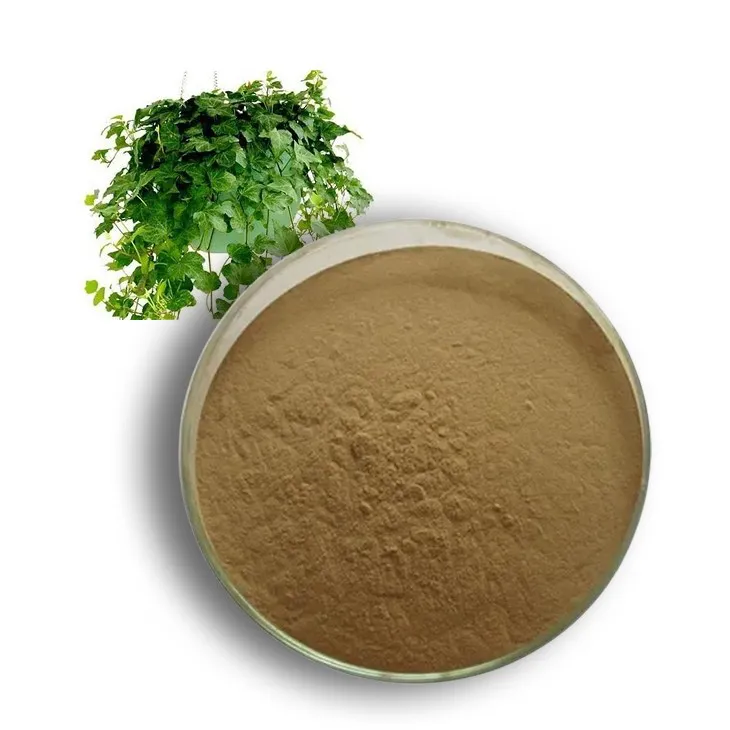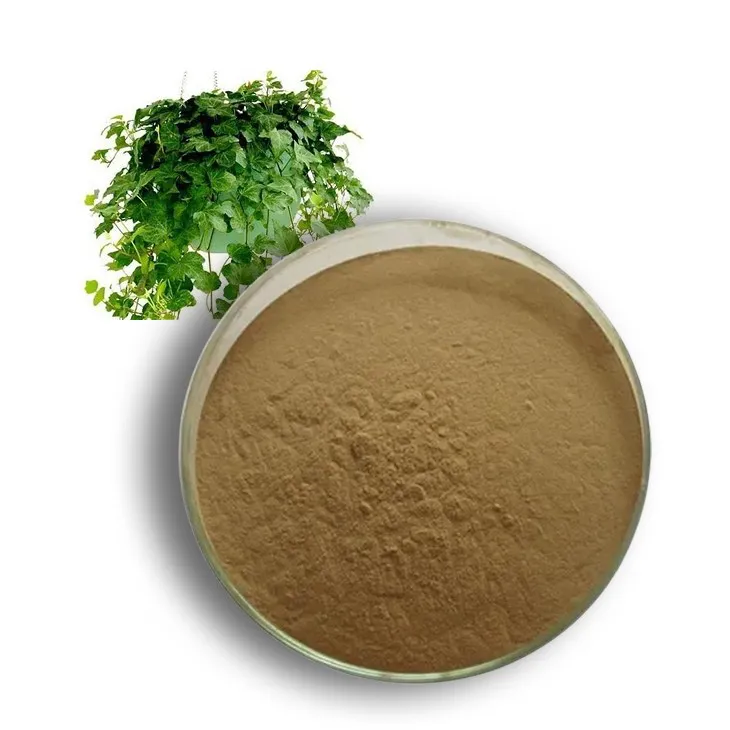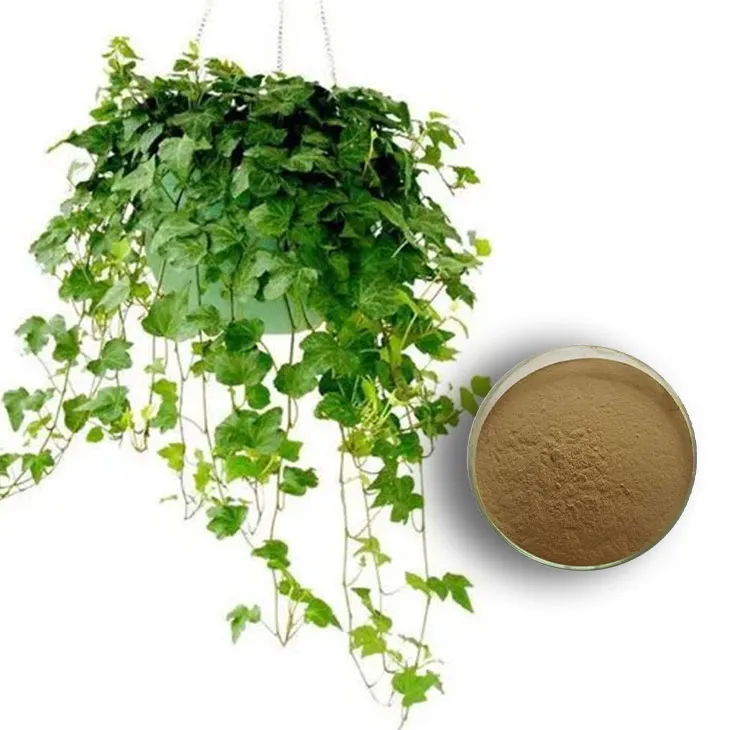- 0086-571-85302990
- sales@greenskybio.com
Navigating the Risks and Rewards: A Safety Overview of Ivy Extract
2024-07-04

1. Introduction
Ivy Extract has long been a subject of interest in various fields, including traditional medicine. It is derived from the ivy plant, which has a rich history of use in different cultures. However, like many natural substances, it is not without its risks. This article aims to provide a comprehensive overview of both the potential rewards and risks associated with Ivy Extract, highlighting the importance of safety considerations.

2. The Potential Rewards of Ivy Extract
2.1 Traditional Medicine Uses
In traditional medicine, ivy extract has been used for a variety of purposes. For instance, it has been applied topically to treat skin conditions such as eczema and psoriasis. The anti - inflammatory properties of the extract are believed to play a role in reducing the redness, itching, and swelling associated with these skin disorders.
2.2 Respiratory Health
Some traditional medicine practices also suggest that ivy extract can be beneficial for respiratory health. It has been used to relieve coughs and congestion. The extract may help to soothe the airways, making it easier for individuals to breathe. This could be due to its expectorant properties, which can help to break up mucus in the lungs and bronchial tubes.

3. Safety Concerns Associated with Ivy Extract
3.1 Skin Reactions
Despite its potential benefits for the skin in some cases, ivy extract can also cause adverse skin reactions. Contact dermatitis is a common concern. This can occur when the extract comes into direct contact with the skin of individuals who are sensitive to it. Symptoms may include redness, itching, and the development of a rash. In more severe cases, blistering may also occur.
3.2 Respiratory System Effects
When it comes to the respiratory system, inhaling ivy extract in certain forms can pose risks. Some people may experience allergic reactions, which can lead to symptoms such as wheezing, shortness of breath, and coughing. Ingesting or inhaling large amounts of the extract may also cause irritation to the respiratory tract, potentially leading to more serious respiratory problems.
3.3 Overall Health Risks
In addition to skin and respiratory issues, there are other potential risks to overall health associated with ivy extract. If ingested in excessive amounts, it may cause gastrointestinal distress, including nausea, vomiting, and diarrhea. There are also concerns about the potential toxicity of certain components of the extract, especially if it is not properly processed or if it is of low quality.

4. Importance of Proper Dosage
Proper dosage is crucial when using ivy extract. Determining the appropriate dosage can be complex, as it may vary depending on factors such as the individual's age, health status, and the intended use of the extract. For example, a different dosage may be required for treating a skin condition compared to using it for respiratory support.
In general, it is always advisable to start with a low dosage and gradually increase it if necessary, while closely monitoring for any adverse reactions. Overdosing on ivy extract can significantly increase the risk of experiencing the negative side effects mentioned above.
5. Quality Control
The quality of ivy extract is another important aspect to consider. High - quality extract should be sourced from reliable suppliers who follow strict manufacturing processes. This includes proper harvesting of the ivy plant, appropriate extraction methods, and quality testing to ensure the absence of contaminants and the presence of the desired active components.
Low - quality or contaminated ivy extract can pose greater risks to health. For example, if the extract contains impurities such as pesticides or heavy metals, it can lead to additional health problems when used. Therefore, it is essential to choose products that are labeled as being of high quality and that have undergone appropriate quality control measures.
6. Understanding Individual Sensitivities
Every individual may have different sensitivities to ivy extract. Some people may be more prone to allergic reactions or adverse effects, while others may tolerate it better. It is important to be aware of any personal or family history of allergies or sensitivities to plants or herbal products.
If an individual has a known sensitivity to other plants in the same family as ivy, they are more likely to have an adverse reaction to ivy extract as well. Additionally, individuals with pre - existing health conditions, such as weakened immune systems or respiratory disorders, may be at higher risk of developing problems when using ivy extract.
7. Conclusion
In conclusion, ivy extract offers potential rewards in areas such as traditional medicine, particularly in treating certain skin conditions and providing respiratory support. However, it also comes with significant risks that cannot be ignored. The safety concerns related to skin reactions, respiratory system effects, and overall health risks must be carefully considered.
By understanding the importance of proper dosage, quality control, and individual sensitivities, users can make more informed decisions when it comes to using ivy extract. It is always advisable to consult a healthcare professional before using any herbal product, especially those with potential risks like ivy extract, to ensure its safe and appropriate use.
FAQ:
What are the potential rewards of ivy extract?
Ivy extract has been used in traditional medicine in some cases. It may have certain properties that could potentially be beneficial, though more research is often needed to fully understand and confirm these effects.
What are the main risks associated with ivy extract?
There are several risks. It can have potential side effects on the skin, such as irritation. In the respiratory system, it might cause problems. And overall, it can pose risks to health if not used properly. There may also be individual sensitivities that can lead to adverse reactions.
Why is proper dosage important when using ivy extract?
Proper dosage is crucial because using too much ivy extract can increase the likelihood of experiencing side effects. Insufficient dosage may not provide the intended effects. Each person may also respond differently based on factors like body weight and overall health, so the right dosage helps to balance effectiveness and safety.
How does quality control play a role in ivy extract?
Quality control ensures that the ivy extract is pure and free from contaminants. Poor - quality extract may contain harmful substances or incorrect levels of active ingredients. This can lead to unpredictable effects and increased risks, so strict quality control measures are necessary to ensure the safety and potential effectiveness of the extract.
What should be considered regarding individual sensitivities to ivy extract?
Individual sensitivities can vary widely. Some people may be more allergic or reactive to ivy extract than others. Previous allergic reactions, family history of allergies, and underlying health conditions can all contribute to individual sensitivities. It is important to be aware of these factors and start with a small amount when using ivy extract for the first time to monitor for any adverse reactions.
Related literature
- Safety Evaluation of Ivy Extract in Complementary and Alternative Medicine"
- "Ivy Extract: Traditional Uses and Modern Safety Considerations"
- ▶ Hesperidin
- ▶ Citrus Bioflavonoids
- ▶ Plant Extract
- ▶ lycopene
- ▶ Diosmin
- ▶ Grape seed extract
- ▶ Sea buckthorn Juice Powder
- ▶ Fruit Juice Powder
- ▶ Hops Extract
- ▶ Artichoke Extract
- ▶ Mushroom extract
- ▶ Astaxanthin
- ▶ Green Tea Extract
- ▶ Curcumin
- ▶ Horse Chestnut Extract
- ▶ Other Product
- ▶ Boswellia Serrata Extract
- ▶ Resveratrol
- ▶ Marigold Extract
- ▶ Grape Leaf Extract
- ▶ New Product
- ▶ Aminolevulinic acid
- ▶ Cranberry Extract
- ▶ Red Yeast Rice
- ▶ Red Wine Extract
-
Tamarind extract powder
2024-07-04
-
Astaxanthin
2024-07-04
-
Acerola Extract
2024-07-04
-
Berberis aristata Extract
2024-07-04
-
Lavender Extract
2024-07-04
-
Europen Bilberry Extract
2024-07-04
-
Licorice Root Extract Powder
2024-07-04
-
Peppermint Extract Powder
2024-07-04
-
Oat Straw Extract Powder
2024-07-04
-
Scutellaria Extract
2024-07-04





















